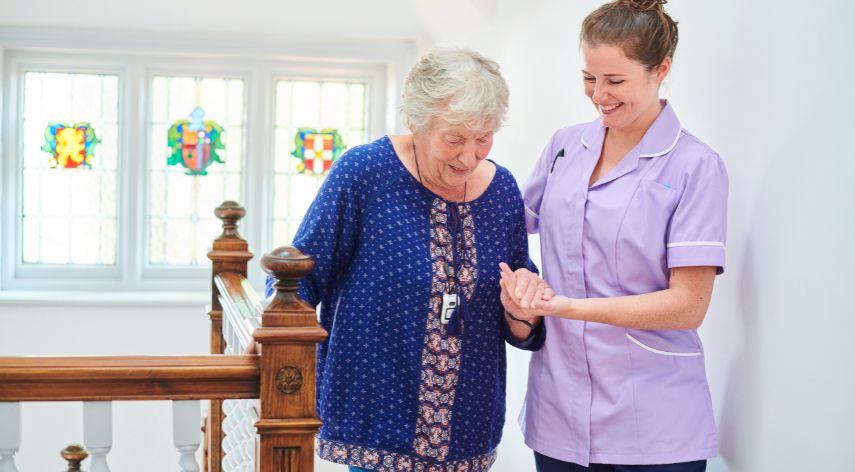Your Guide to Fostering Independence and Dignity in Older Adults in Care Homes

As people age, maintaining a sense of autonomy becomes increasingly important for their overall well-being and quality of life. Autonomy, or the ability to make one’s own decisions and direct one’s own life, is a fundamental aspect of human dignity. For older adults living in care homes, fostering autonomy can be challenging due to the structured environment and the need for assistance with daily activities. However, care homes that prioritize and encourage autonomy can greatly enhance the mental, emotional, and physical health of their residents.
This article explores the importance of autonomy in care homes and provides practical strategies for encouraging independence among older adults, ensuring they live with dignity and purpose.
Table of Contents
ToggleStrategies for Encouraging Autonomy in Care Homes
Promoting autonomy in care homes requires a shift in focus from simply providing care to supporting residents in making their own choices and directing their own lives. Here are several strategies that care homes can implement to encourage autonomy among older adults:
-
Person-Centered Care
Person-centered care is a philosophy that places the individual at the center of their care, respecting their preferences, values, and needs. This approach involves tailoring care plans to the unique preferences and abilities of each resident, especially in key facilities like expert care homes in Bristol.
- Individualized Care Plans: Develop care plans that reflect each resident’s preferences, strengths, and goals. Involve residents in the creation and ongoing review of their care plans, ensuring they have a say in their daily routines, activities, and care decisions.
- Respecting Personal Preferences: Allow residents to make choices about their daily lives, such as when they wake up, what they eat, how they dress, and how they spend their free time. These choices may seem small, but they have a significant impact on a resident’s sense of autonomy and well-being.
-
Encourage Decision-Making
Supporting decision-making is a key component of fostering autonomy. Care homes can encourage residents to make their own decisions by providing opportunities for choice and respecting their decisions, even when they differ from what staff might prefer.
- Offer Choices in Daily Activities: Provide residents with options for how they spend their day, such as choosing between different recreational activities, meal options, or social events. This empowers them to take control of their day and engage in activities that interest them.
- Involve Residents in Care Decisions: Encourage residents to participate in decisions about their medical care and treatment. Explain the options available and respect their choices, even if they choose a less conventional approach. This involvement helps residents to feel more in control of their health and well-being.
- Promote Problem-Solving Skills: Support residents in solving problems and making decisions by providing guidance rather than taking over. For example, if a resident is unsure about which activity to choose, staff can offer suggestions and discuss the pros and cons, helping the resident come to their own decision.
-
Adapt the Environment to Support Independence
The physical environment of a care home can either support or hinder a resident’s ability to be autonomous. Creating an environment that promotes independence is essential for encouraging autonomy.
- Design for Accessibility: Ensure that the care home environment is accessible and easy to navigate for all residents, including those with mobility challenges. Features like handrails, ramps, and clear signage can make it easier for residents to move around independently.
- Simplify Daily Tasks: Adapt the environment and provide tools that make it easier for residents to perform daily tasks independently. This might include installing lever-style door handles, providing adaptive utensils for eating, or using clothing with easy-to-use fasteners.
- Create Private Spaces: Offer private or semi-private spaces where residents can spend time alone or with visitors. Having a space that they can control and personalize helps residents to maintain a sense of ownership and autonomy.
-
Promote Social and Community Engagement
Autonomy isn’t just about making individual decisions; it’s also about having control over your social life and relationships. Care homes can encourage autonomy by promoting social engagement and community participation.
- Encourage Participation in Resident Councils: Resident councils are groups that allow residents to have a say in how the care home is run. Encourage residents to participate in these councils, where they can voice their opinions, suggest changes, and be involved in decision-making processes that affect the entire community.
- Facilitate Social Activities: Offer a variety of social activities and events that cater to different interests and abilities. Allow residents to choose which activities they want to participate in, and encourage them to take on leadership roles in organizing or leading these activities.
- Support Relationships with Family and Friends: Facilitate regular visits and communication with family and friends. Encourage residents to maintain their outside relationships, which are essential for their emotional well-being and sense of autonomy.
Summing Up
Encouraging autonomy in older adults living in care homes is essential for promoting their dignity, well-being, and overall quality of life. By implementing strategies that support decision-making, adapt the environment, promote social engagement, and empower staff, care homes can create a culture that values and respects the independence of every resident. While challenges exist, a commitment to fostering autonomy can lead to a more fulfilling and enriched life for older adults in care settings. Ultimately, supporting autonomy isn’t just about providing care; it’s about empowering people to live their lives with purpose and self-determination.
Mike Farrier possesses over 18 years of hands-on experience in software and web development, SEO, social media marketing, eCommerce, and digital marketing. He has been active in the online domain since 2019, serving as a seasoned SEO and digital marketing consultant.
Recommended For You
Spread the loveTaylor County, located in the heart of Florida’s Big Bend region, is a treasure trove of natural beauty,
Spread the loveNational Daughters Day is an annual event that celebrates the cherished relationship between parents and their daughters. This
Spread the loveIn an era where environmental conservation is more crucial than ever, VoicesofConservation.org emerges as a pivotal platform, uniting





